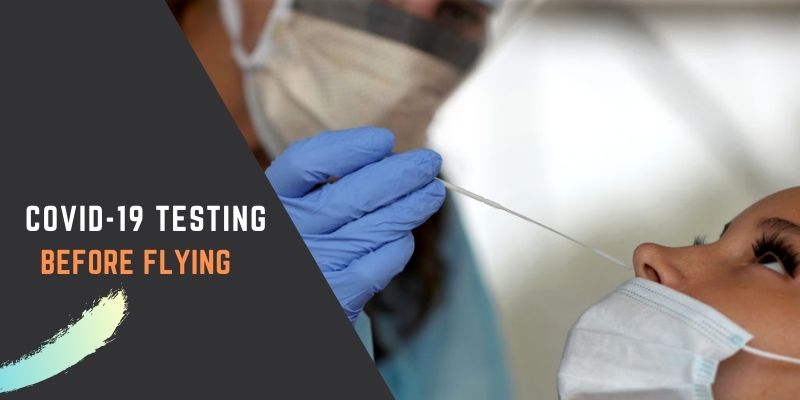Presently, several uncertainties are surrounding travelling during the COVID-19 pandemic. Although many countries are beginning to allow travellers into their country, travelling is no longer the same. Many experts believe that despite the uncertainties surrounding air travels, COVID-19 test for travel will remain a constant. Some countries require you to take the test and quarantine for about 14 days upon entry. This, amongst others, are things every one travelling should know.
Do I need to get a COVID-19 test for air travel?
Getting a COVID-19 test before air travel depends on several factors, and the requirement for testing differs between countries. The country you are travelling from and your current health status also determine your need for the COVID-19 test.
Most countries require non-residents and tourists to have a negative PCR COVID-19 test result from an approved testing centre for them to gain access into the country. If you travel to these countries without your negative test result, you would be denied entry at the border. You may also have to undergo a mandatory quarantine for about 10 – 14 days at your travel destination.
Some other countries, like the UAE, require travellers to get a negative pre-travel COVID-19 test and another test at the airport when they arrive. Bear in mind that the entry requirement for different countries is constantly changing, so you need to keep checking the official website of your travel destination for updates.
Why should travellers get COVID-19 test before travelling?
Since the onset of the COVID-19 pandemic, travel demands have reduced, especially in Europe. The quarantine requirements, continuously changing COVID-19 policies, and entry restrictions have made most people hesitant to make travel plans. A survey on people intending to travel shows that about 83% of them will not travel if they have to quarantine at their travel destination.
The replacement of quarantine with a negative pre-travel COVID-19 test has encouraged more people to make travel arrangements, and this has helped restore air travel to some extent.
The pre-travel testing has also given most governments the confidence to open up their borders to tourists and other travellers. In most countries, pre-travel testing has also eliminated the need for quarantine.
However, some countries are yet to open their borders to travellers from certain countries. The IATA has a COVID-19 testing guideline and is calling on all countries to use this testing guideline to enable more people to travel.
What type of COVID-19 test is ideal for travellers
Most countries require travellers to get RT-PCR (Real-time Reverse Transcriptase Polymerase Chain Reaction) COVID-19 test. This test is usually the gold standard when it comes to detecting viral infections.
The test requires a nasal or back of throat swab sample, but some of these tests require a saliva sample.
What is the ideal system of testing?
The PCR test is widely available in different approved testing centres. In most cases, you need to get the test at most 72 hours before you arrive at your travel destination.
Who pays for the test?
Most countries require travellers to get their pre-travel COVID-19 test from an approved private testing centre, so you may have to pay for your COVID-19 travel test.
What if the result is positive?
If you perform your pre-travel COVID-19 test, and the result is positive, you may not be able to travel. It is important to have a flexible travel plan for unforeseen problems like this. Depending on the airline and your travel insurance plan, you may get a refund for certain expenses already incurred.
If you want to get a PCR swab test for COVID-19 and a fit to fly certificate, Get in touch or visit PCR Test Clinic in London. You can also contact us on 020 31376952 to book an appointment for your test.


